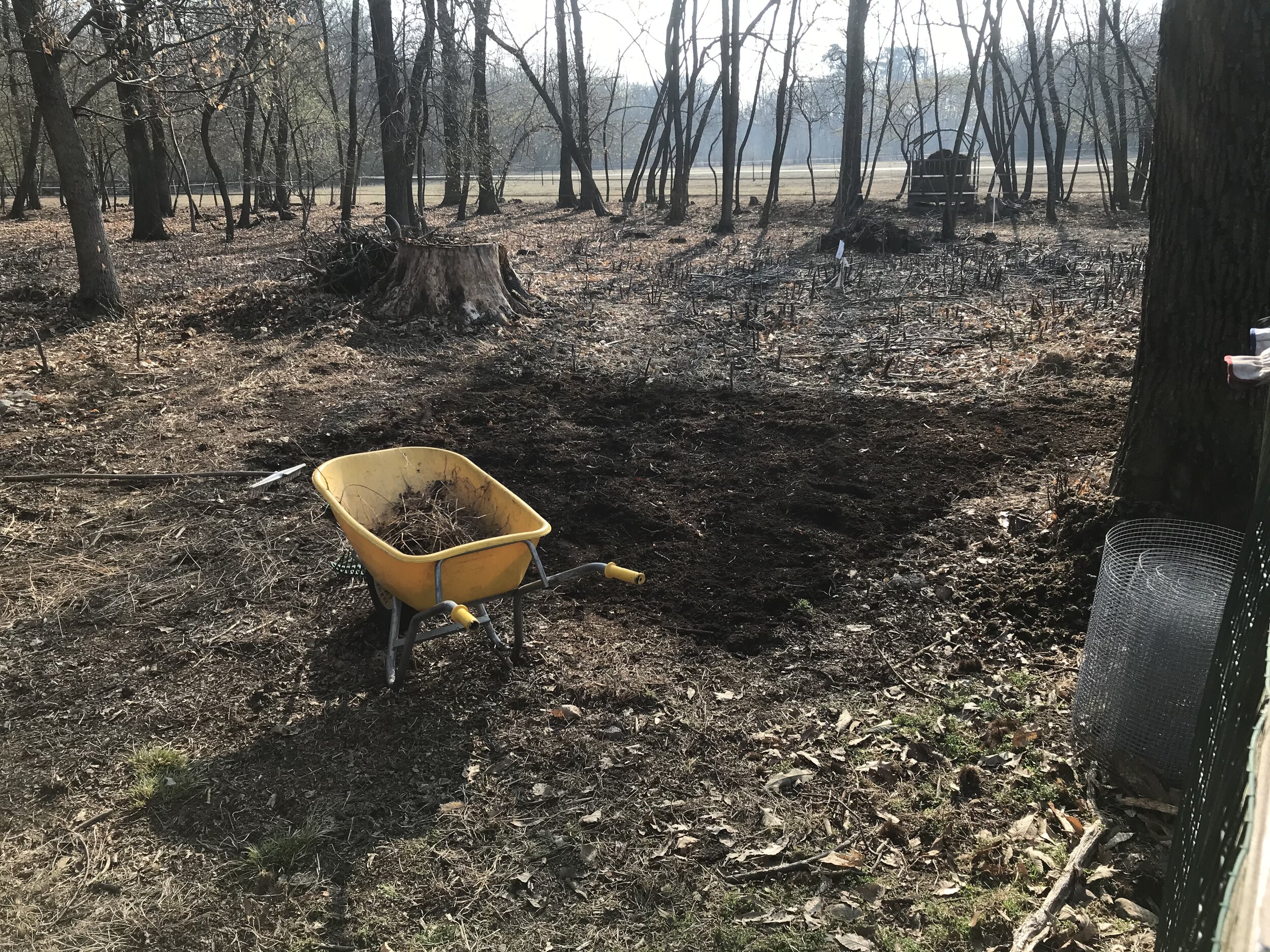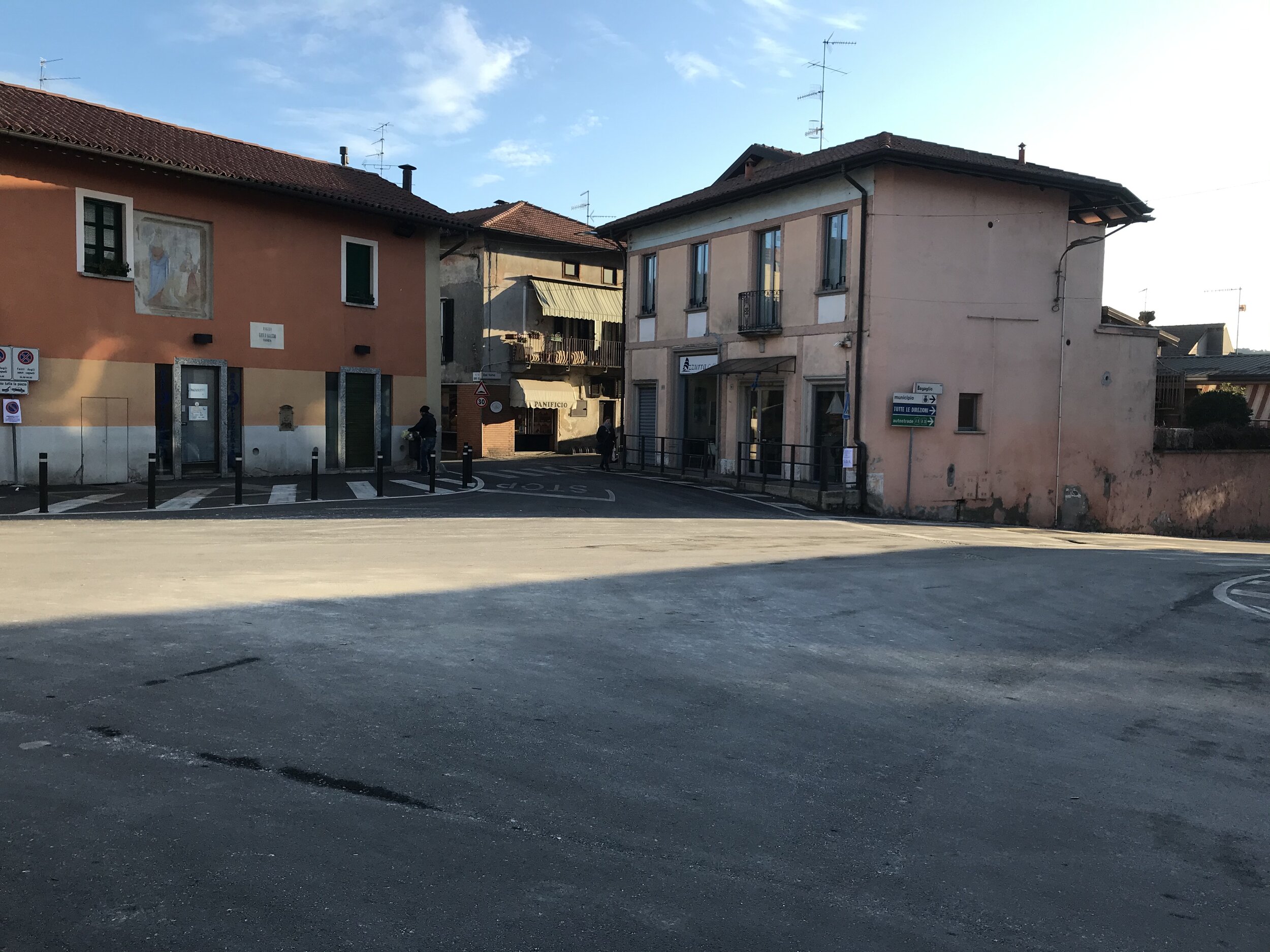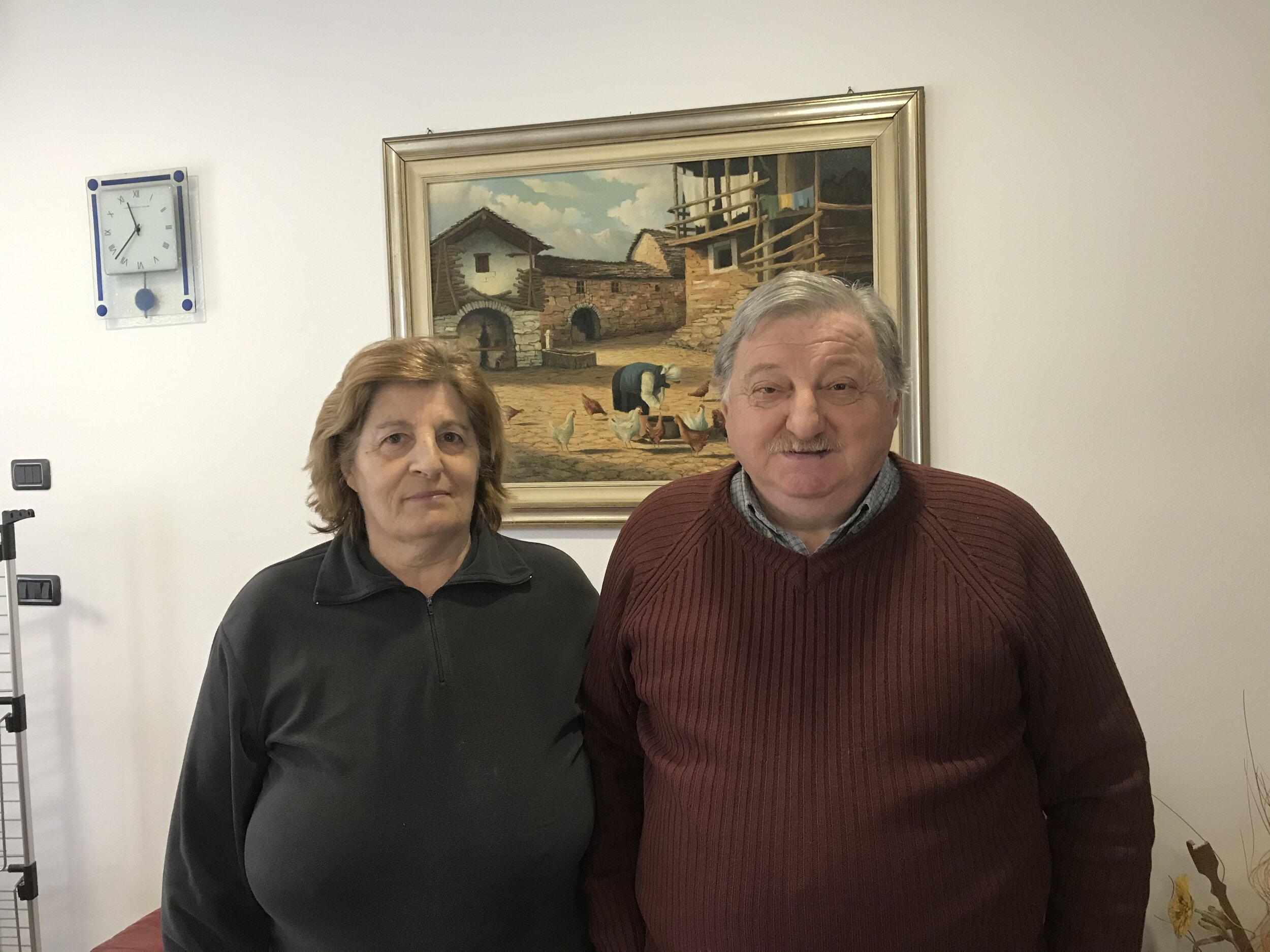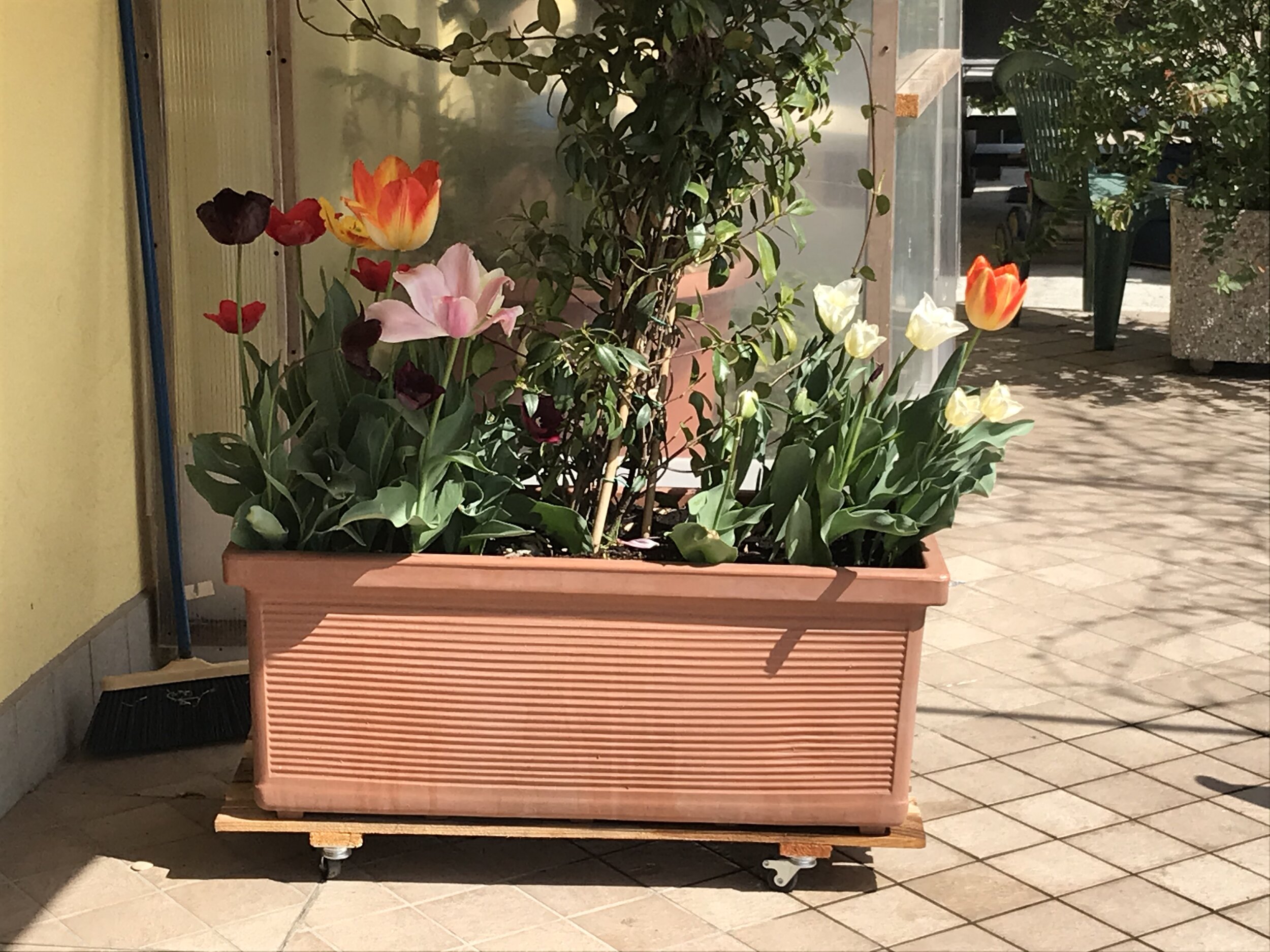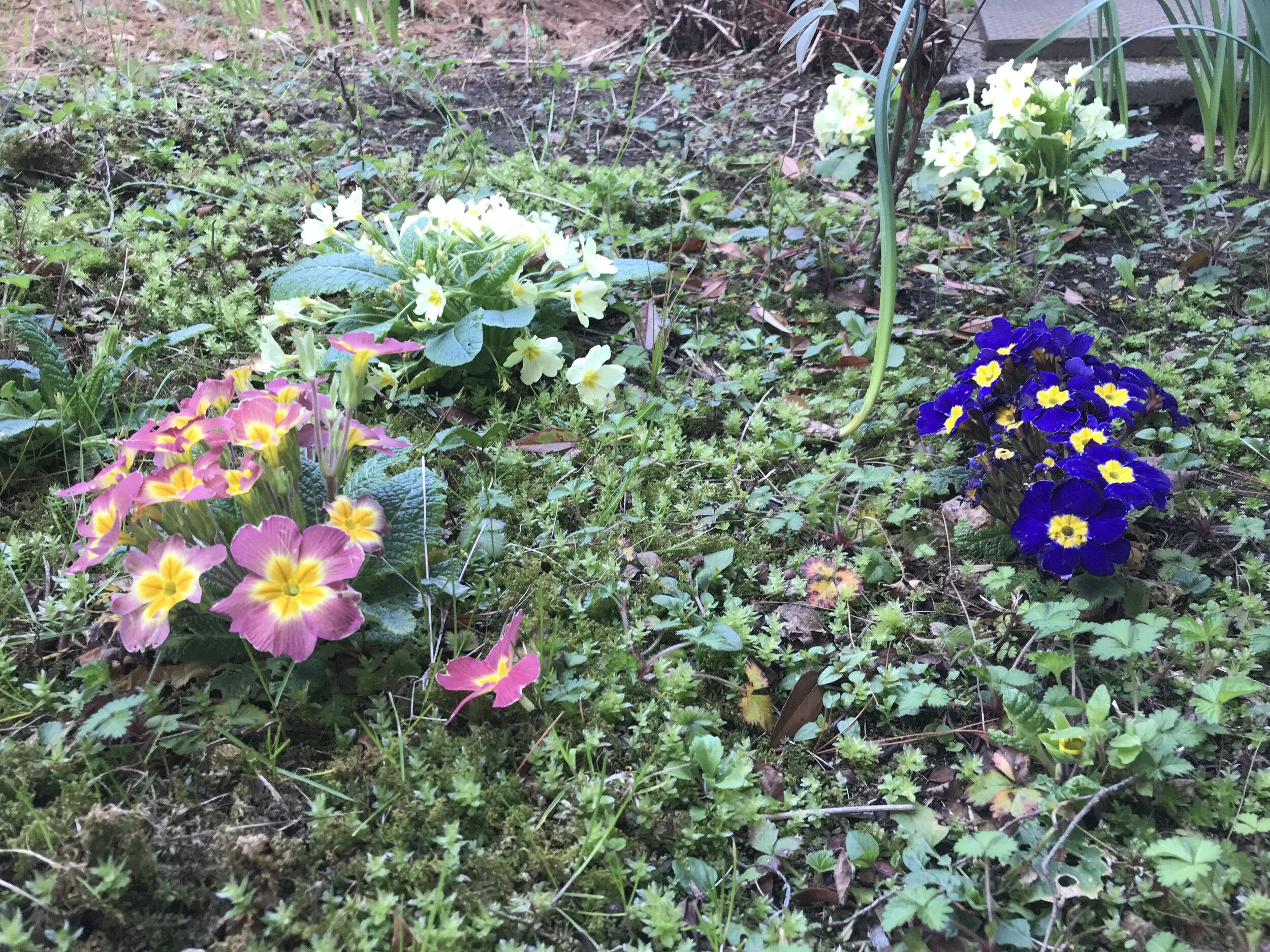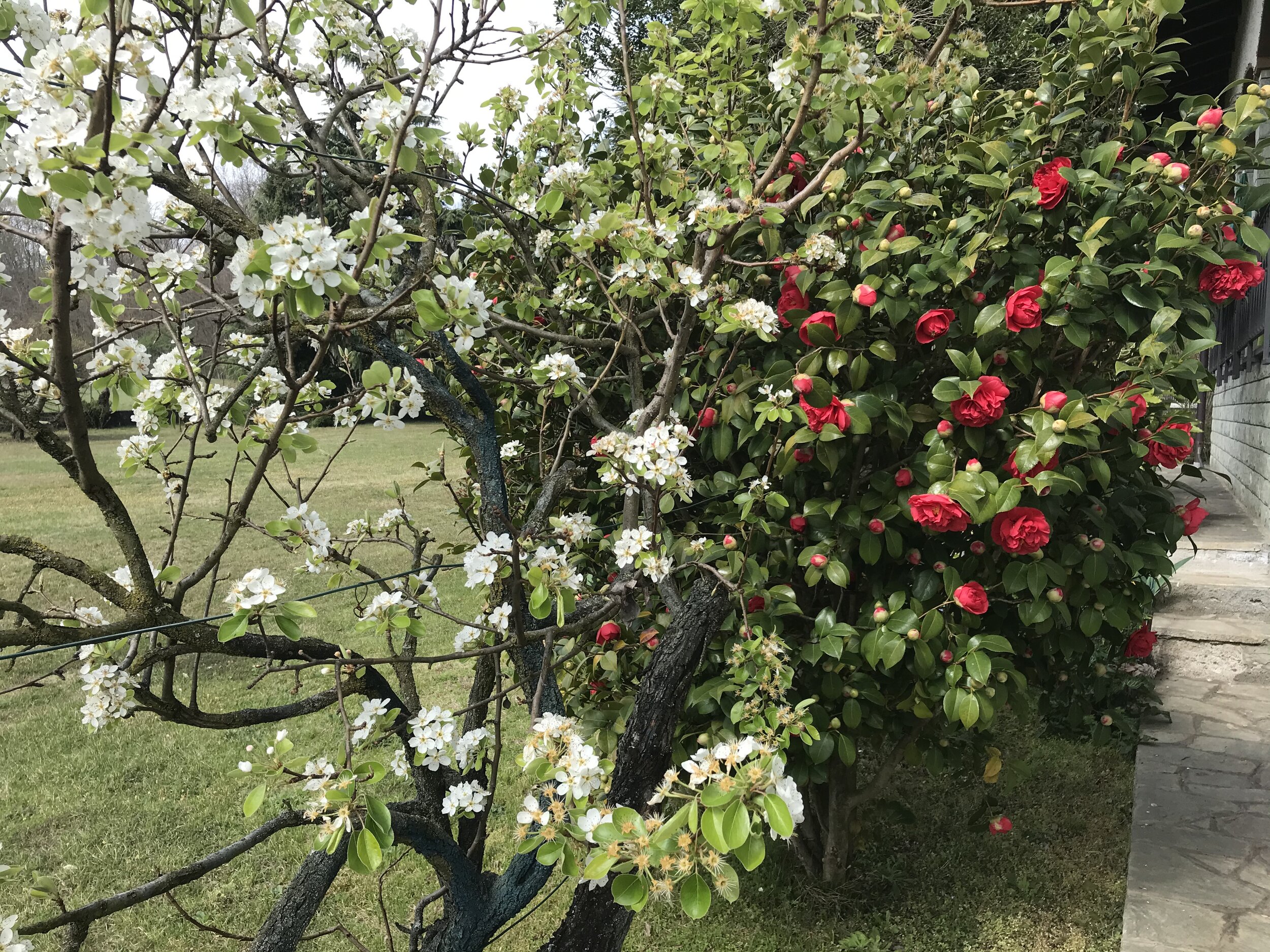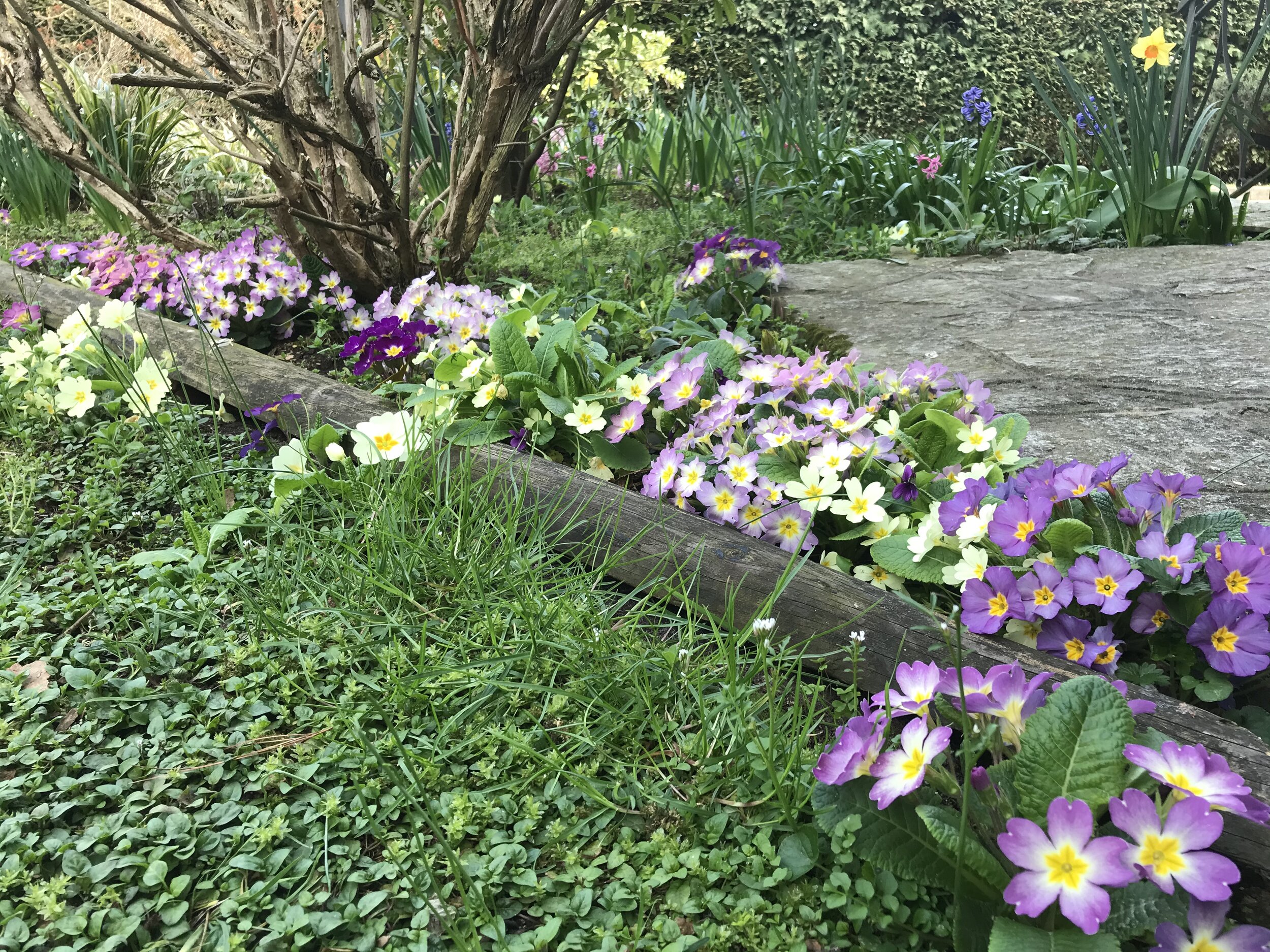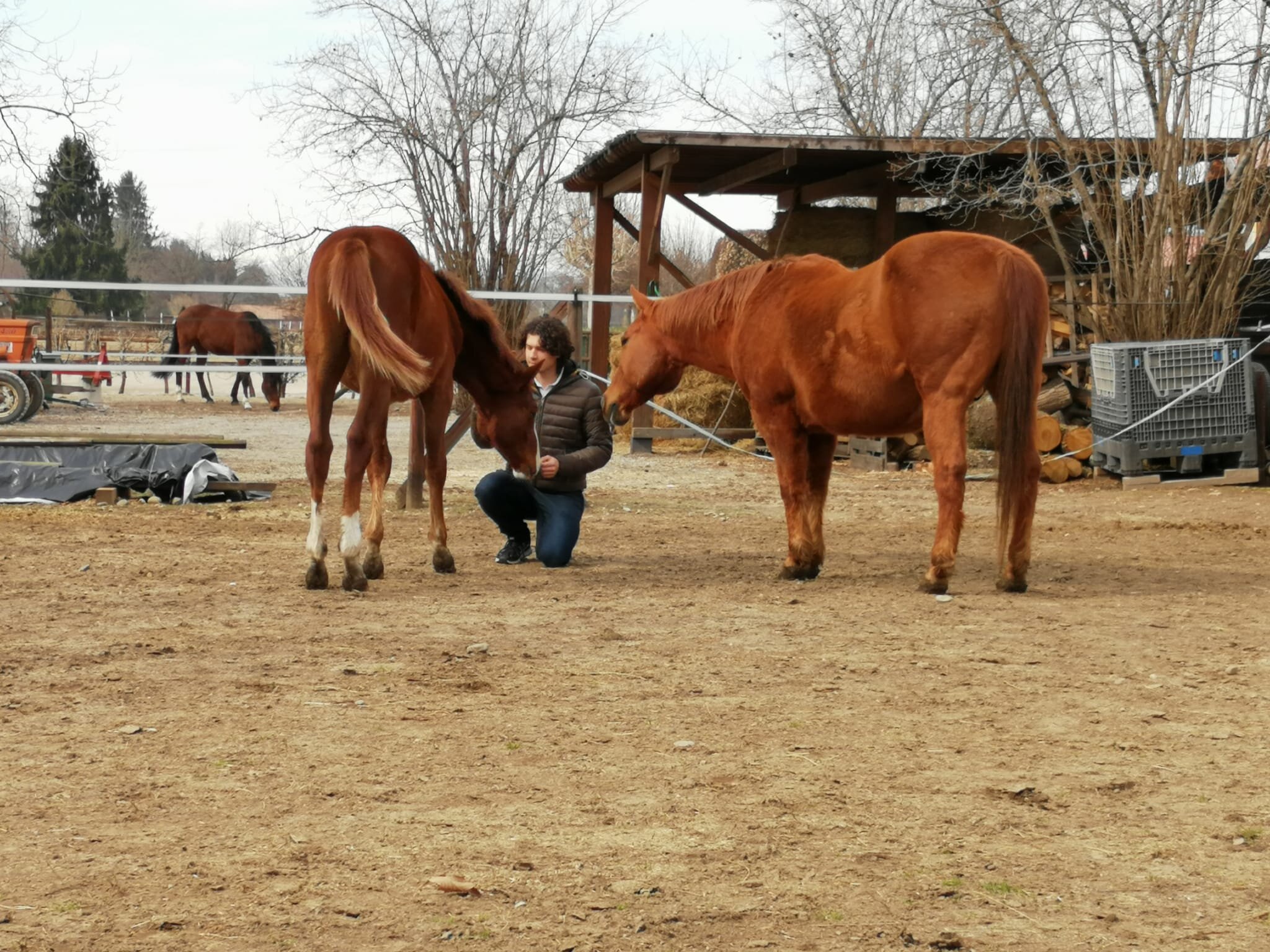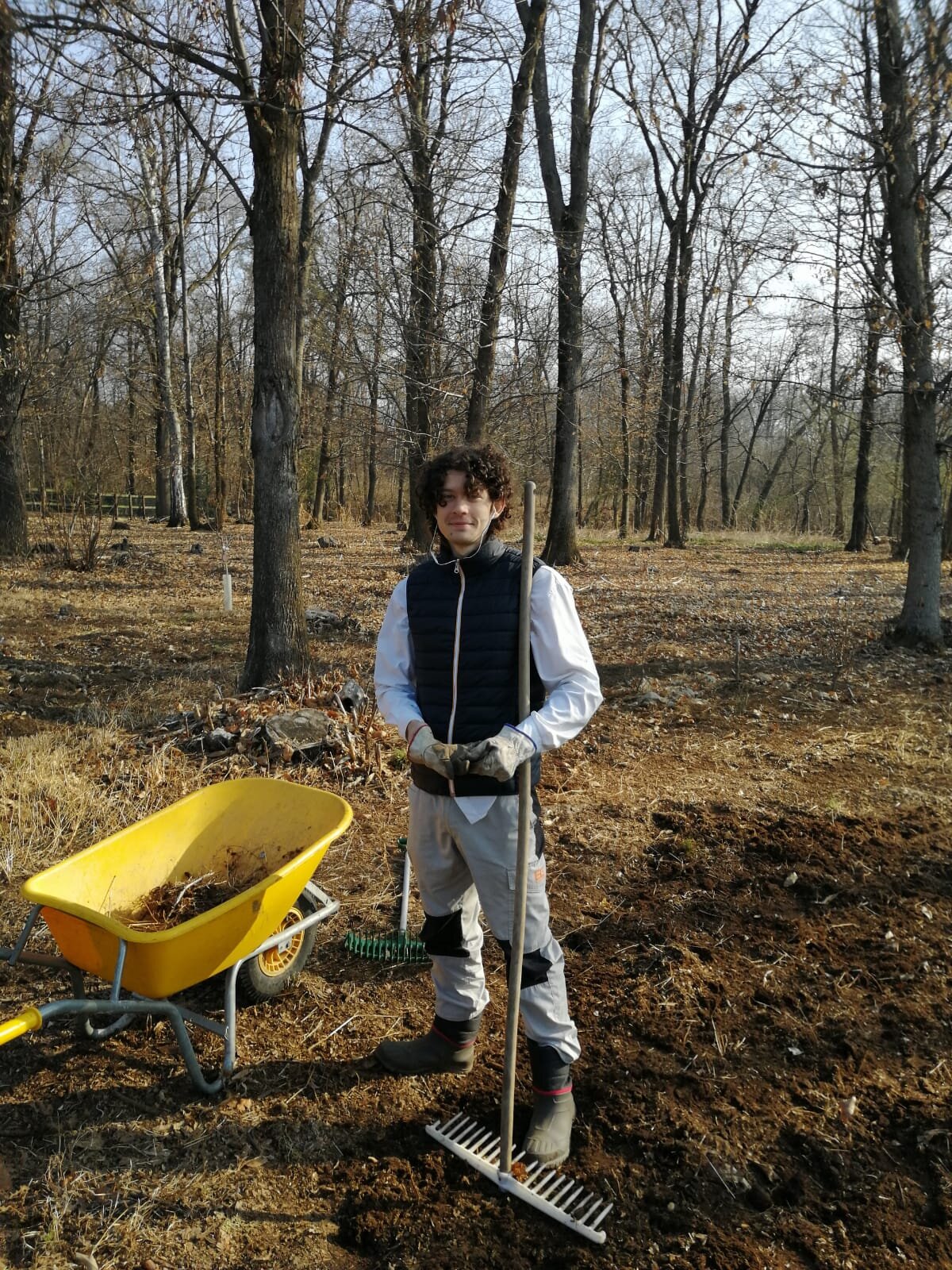I don’t think anyone needs anymore details about COVID-19. I want to take this blog post to start talking about some other aspects of travel and living in Italy. It turns out that when you are forced to stay in your house while a pandemic sweeps human civilization, there are many opportunities to work from home! And aside from the fact that the Italian government won’t allow me to walk outside a 200 meter radius from my house, and many countries won’t allow for free travel which pretty much shuts down the “nomad” part of the digital nomad moniker, I’m definitely living up to the title.
PICTURED: Piazza Balconi, Mercallo, my current residence.
I live in a tiny commune called Mercallo of a few hundred people. The land on which I live sports two classic Italian buildings sitting either side of each other with a lawn beyond them fenced in with old ivy-covered concrete walls. All this was farmland once, and bought by one man who I will introduce later. I live in la mansarda, the attic of the left-side building, above the landlord, Gianfranco. The house in the same building next to us is taken up by his uncle-in-law, Lino. Across the courtyard, the building holds three units – the bottom right unit taken up by Viscardo, Lino’s brother, and his wife Ornella, who are pensioners. The bottom left unit is taken up by Linda, Viscardo’s sister, the upper unit by… I can’t remember the name, but it’s Viscardo’s son, his wife, and their I-don’t-know-how-many kids. More relations – cousins and aunts and such, have stopped by, but it has taken me this long to iron out the entirety of the interconnectivity of I vicini – the neighbors, and I can’t remember any more. Gianfranco’s wife, Arianna, is the daughter of one of the three siblings Viscardo, Lino, or Linda, whose father bought the land and built the house. Apparently he also served in the Italian military in Africa during the Second World War, and was captured by the British. Linda told me he made a violin for himself in prison.
PICTURED: Of course when Viscardo isn’t in front of a camera, he smiles constantly, and is the most jovial of men.
I’ve been rapidly accepted by them, and Viscardo is basically my best friend ever since the day when I wanted to practice my Italian and invited him to take a coffee with me. We went for a giro – a turn, and over and over he would go to people and introduce me, saying”: “Ti presento questo bello ragazzo” – I present you this lovely young man”. We walked around Lago Comabbio, looked at swans, and have since hung out in many occasions. Somehow I can understand his Italian even though he speaks pretty fast. His wife is much more measured, but her accent just can’t get the words into my hard head. Spanish is definitely easier.
Throughout my whole life, I’ve never known my neighbors on a first name basis. I have NEVER borrowed a stew pot, cloves, a lemon, and I certainly have never shared keys with the neighbors. I’ve never made cheese with neighbors, or ricotta cheese with neighbors. I’ve never gone grocery shopping for my neighbors, I don’t garden with the neighbors, and I’ve never shared dinner recipes them. Maybe it’s just because I moved into a small town and not a big city that I should have become such a recognizable face in the community, but maybe that’s just what happens to you here in Italy. I’ll never forget the moment during my trip to Roma in 2016 when I was calmly leaning against the wall of a convenience store and a young woman in a white dress and red sweater wrestled my gaze away from the passing crowds, only for the purpose to say ciao! before walking away as if she had been speaking to a dog. Mara, my Italian partner, introduced me to her parents on the first night I arrived from Africa – effectively what would become the 1st day of our relationship. Italians are people-people it seems, and that’s probably why so many of them are dying from COVID-19 – aging population, smoking population, and dense households. If one of the kids, or I, or Mara, or anyone dwelling at 115 Cascina Pozzi caught the bug, we would all have it before lunch time.
PICTURED: Linda opted out of the photograph, but because she has been so kind to me, I chose to represent here with this stunning collection of tulips, demonstrating to tremendous skills as a gardener.
Included in the group of people who have granted me a very comfortable social life are Mara’s nonni a very important group of family members in Italian society – the grandparents – Carla and Lino. Carla is a gardening guru, and sharp as well, speaking two and a quarter languages at 74 years of age while still getting about on walks, tending the garden, and out to art museums and more; the picture of successful aging. We often go for tea at Carla’s house which is a beautiful old house with positively medieval front doors and an interior filled with ‘they don’t make em like they used to’ furniture that hasn’t changed since Mara’s father was growing up there. Her garden is tremendous, and it made me want to make an effort in the same direction. As I grow older I find myself drawn further and further towards the cultivator’s hobby.
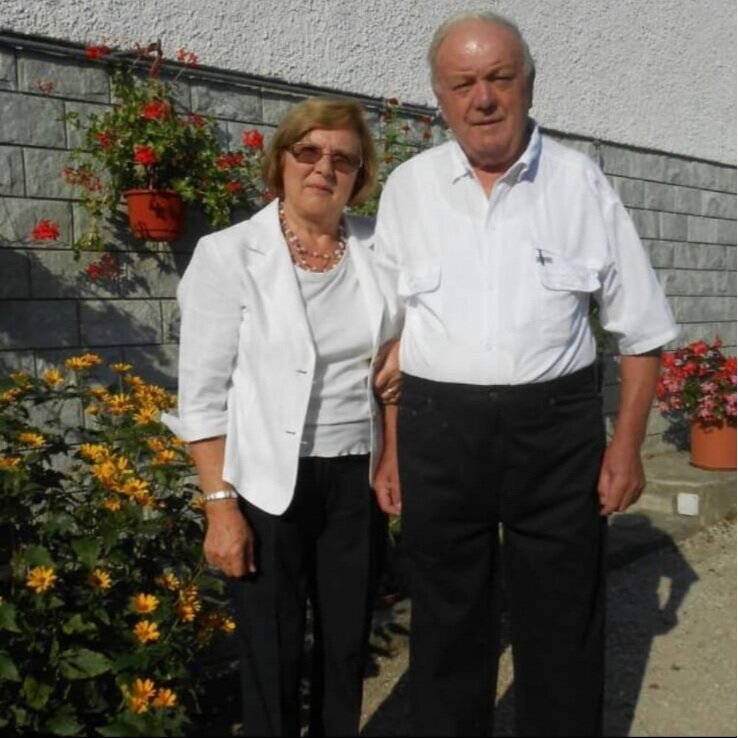
The last thing that has characterized my life here in Italy is rural work. I started an orto which sort of means any amount of dirt one grows flowers or vegetables in that is smaller than a proper farmer’s acre, but bigger than a flower pot. The scope of consumed vegetables here in Northern Italy is much smaller than the United States, and my favorite kind of veggies, dark leafy greens, are the most limited. Everything is cavolo – cabbage, even the ones that aren’t cabbage. This is where I truly feel that English is better than other languages: because our need to constantly sub-divide things into smaller and smaller categories and designation gives us a clearer ability to communicate. Here, bok choy, kale, tuscan kale, collard greens, tasty cabbages and awful cabbages are all called cavolo. Regardless, I planted spinach and parsley in rows, and am waiting for the days to warm more regularly before planting brussel sprouts and rhubarb. At home on the balcony I have marigolds, thyme, chives, oregano, dill, and sage, strawberries, jasmine, and some assorted flowers that have piled up from me buying Mara presents. Regardless of its reverence in Italian cooking, I am not bothering with basil, as it is as fragile as Juliet and when it decides it’s time to die, there’s no stopping it. I have great hope for these crops, as I was able to mix in barrows of manure from the neighbor’s donkeys into the soil, which Mara’s mother has told me creates magical crops.
Mara is a championship horse rider. She has worked with horses for 20 years and understands them at a frighteningly detailed level. She owns several of them so it was only a matter of time before I began to help her with their care. What a strange thing it is that tending these beasts went from being peasant labor to requiring facilities and equipment that only the very rich can afford. Literally waking up at dawn every morning, Mara drives to her stable and shovels shit, even though she’s a criminal defense attorney. That will never stop being humorous to me. I like working with the young 8 month-old horses, as they are really friendly and not so big, but her competition horse, the black mare called Edelvona, is also very relaxed and has never done wrong to me.
Yet while all this basing and homemaking goes on, my life as a digital nomad is still in full effect and really only just beginning. I have long trips planned to the U.S., I have already visited Switzerland and Venice, and thanks to il amore mio, I will complete my original African itinerary in October with a visit to Morocco followed by a brief excursion to Stockholm. Next year we have plans for Mongolia and Myanmar, and probably much more. Being a digital nomad doesn’t always mean you have to be on the move. Sometimes the whole point of being a nomad is to settle down for some extended period of time, because as much as traveling and tourismo allows you to see what another culture is like or how life is lived in different parts of the world, settling down allows you to sort of “play house” and get a true sense of what your life might be like if you had been born in Morocco, or in Peru, or in Italy. I’m planting perhaps deeper roots than my heroes: Amanda Kingsmith and Ryan Ferguson from the World Wanderers Podcast who spend so much of their time in their adopted home of Mexico City, but if you asked any of us, certainly now I think we would say that maybe an inevitable part of being a digital nomad is the adoption of a faraway place, a home away from home.
